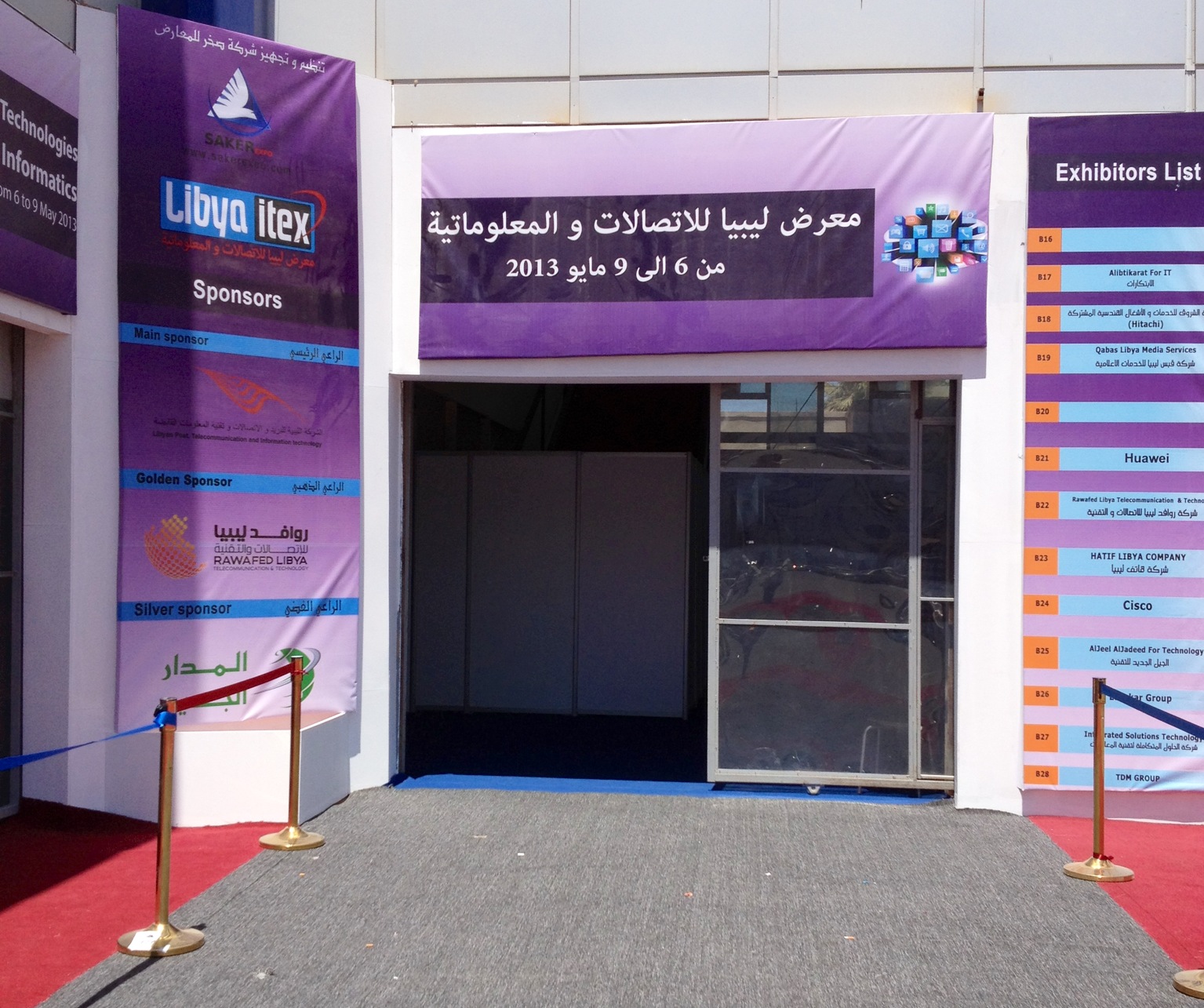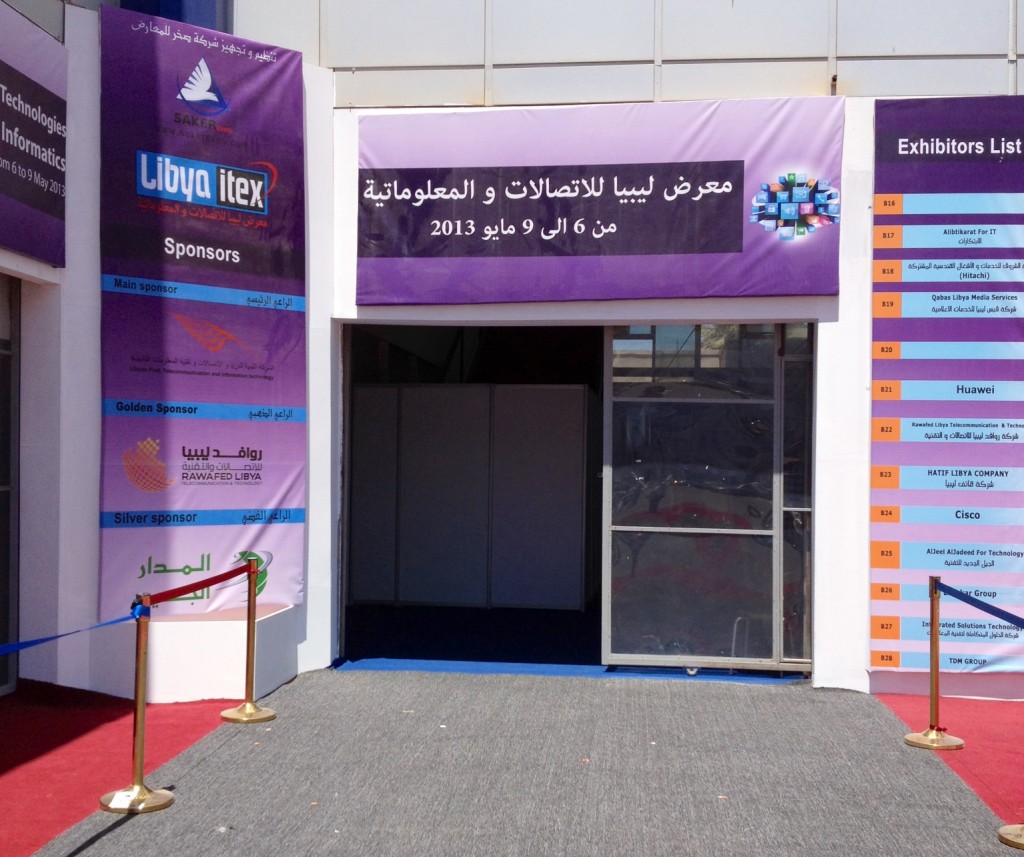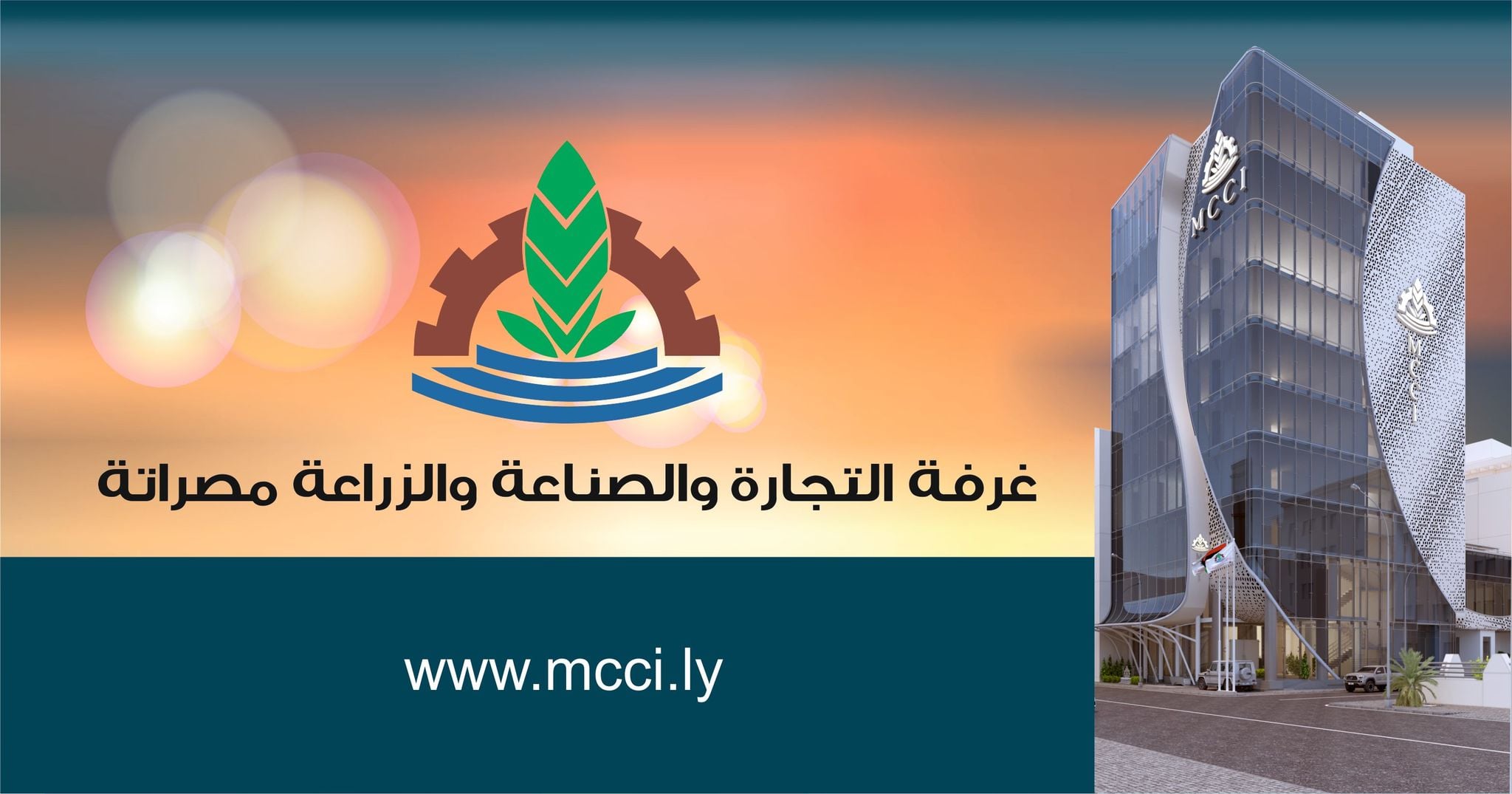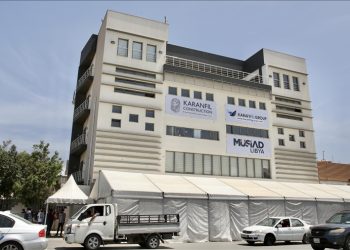By Nihal Zaroug.
Tripoli, May 7 2013:
The International Telecommunication and . . .[restrict]IT exhibition’s (ITEX) second day was in full swing today with a guided tour given to guests including the General Manager of the Libyan Post, Telecommunication and Information Technology Company, Saleh Lagtaa, and Head of the National Economic Development Board, Tarek Tantoush. Despite being the second day, it was in fact the official opening.
Lagtaa told the Libya Herald that such events were beneficial on several fronts. “It (ITEX) brings people together, increases communications, provides opportunities and most importantly encourages the sector.”
This was evident in the Tunisian exhibitors’ pavilion, where companies promoting their products and services had the chance to meet and talk with Lagtaa and Tantoush. The exhibitors, aware of the current challenges facing the country, were reassured that Libya had the will to move forward and was looking to adopt better business practices ensuring more freedom for the private sector.
Lagtaa added that ITEX provided a platform for regional cooperation and helped bridge the local and international gap. One of Libya’s strategies was to work more closely with neighboring countries like Tunisia said Tantoush, as this could create a “trading circle to the benefit of both nations”.
Tantoush told listeners that government should set guidelines but it was the private secotr that had the bigger role to play. He added that society too should see itself as a principle player in this. Asked to explain, Tantoush told the Libya Herald that local business development would be more effective with contributions from civic organisations as they could help cultivate entrepreneurship and motivate individuals to take initiative.
In his view, much could be gained by seeing the government, businesses and the public as a triple partnership. The government needed businesses for the health of economy, businesses lookd to the state to act as a regulatory body and the public was the force pushing for change and progress. “It is a balancing act”, he told the Libya Herald.
He noted that the National Economic Development Board was currently considering the establishment of a socio-economic council through which better collaboration with various players could be achieved.
Standing out from the crowd of IT booths was Start Up Weekend Libya, an organisation dedicated to company creation. The organisers said they saw ITEX as a unique opportunity to network with businesses and those who were serious about entrepreneurial development in Libya.
The success of Start Up Tripoli had given impetus for lead organiser Ebrahim Shetewy to pursue funding for the business ideas developed during Start Up Weekend. “This is why we are here,” he told the Libya Herald. “We need to help participants and seek financiers for their projects”. Shetewy hopes that adding a financial component to the upcoming edition of Start Up will make it better than the first event.
Companies on exhibit are offering a wide range of products and services, including security solutions, electronic banking options, satellite Internet and various integrated IT programmes.
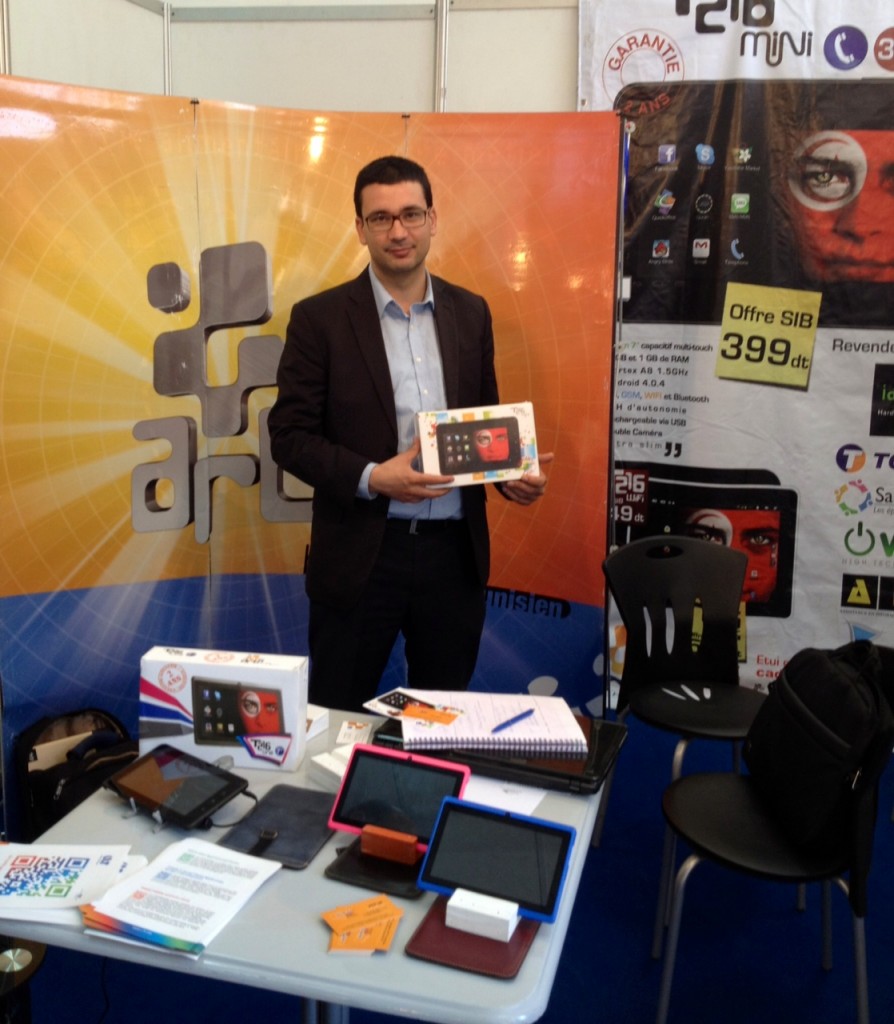
Among the more innovative exhibitors is Arts, a Tunisian company promoting the use of PC tablets for education. Chiheb Bouattour, Arts general manger, says a pilot project has been established in Tunis. Although specific details are still being worked out, Bouattour hopes to see the tablets in the hands of school children very soon. The project will not only promote technological advancements in learning but also aims to create jobs. He tells Libya Herald, that the devices were manufactured, assembled and programmed locally. Bouattour is a firm believer that nations like Tunisia and Libya must push the envelope and make “technological jumps” to catch up to the world.
Another interesting booth is Culture Active, an Italian company promoting the use of interactive interfaces for the advancement of culture, by breathing life into displays through the use of state-of-the-art technology. Winnie Shih says that a perfect use for Culture Active is in museums and as a promotional tool for the 2017 African Cup of Nations (CAF) due to be hosted in Libya.
ITEX runs till 9 May at the Tripoli International Fair Ground. [/restrict]
